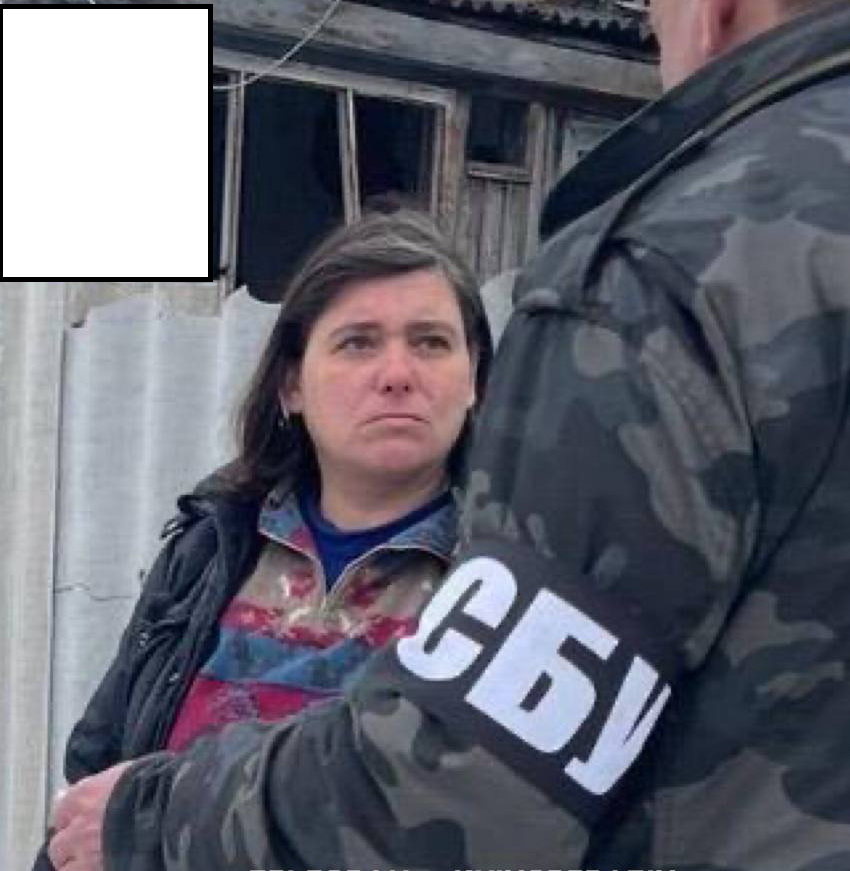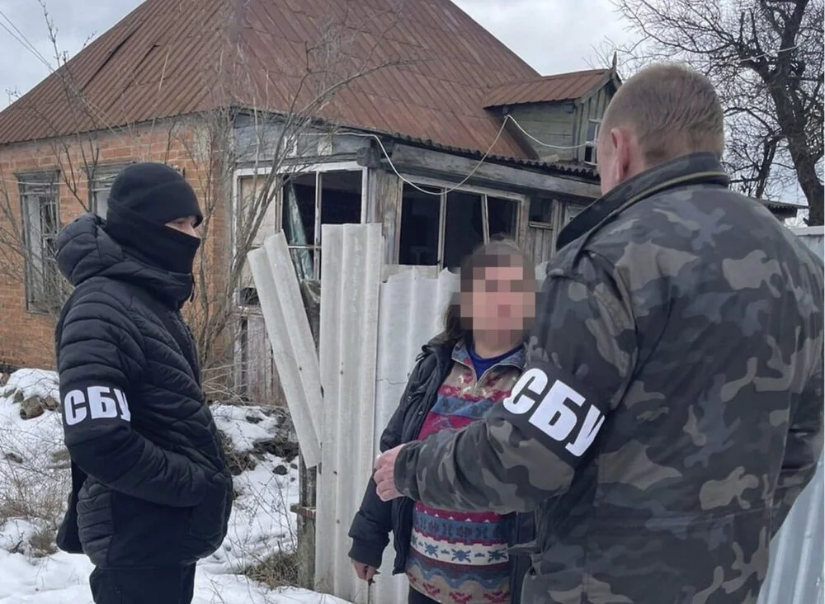Natalia Shablenko worked as a postal worker at the 9th branch of Ukrposhta in Izium, Kharkiv Oblast. In early June 2022, when Russian forces entered Izium and all Ukrainian state and municipal institutions (including the post office) ceased operations, it became necessary to organize the functioning of essential services in the city. Former Ukrposhta employees gathered near the Izium District Military-Civil Administration building at 37 Soborna Street to determine their next steps. At the meeting, Natalia announced her willingness to head a new municipal enterprise, “Izium Post,” and invited other employees to join. Fifty-four people agreed.

Shablenko opened several post offices, signed contracts with employees, and received their salaries from the Russian administration—initially in food, later in money. This became the first reason for accusing her of collaboration, although it’s clear that the operation of the post office (like other essential municipal enterprises) in territory occupied by a belligerent is protected by the Fourth Geneva Convention. The occupying power, according to IHL, is obligated to provide people with the means to survive. If Ukraine stopped paying salaries and the territory is under Russian control, Russia should pay the salaries.
Until September 2022, when Russian forces withdrew from Kharkiv Oblast, Izium Post performed all possible postal functions, including distributing local newspapers: “Izium Telegraf” and “Kharkiv Z.” This alone cannot constitute a crime, but SBU officers, using linguistic expertise, found in the newspaper articles “signs of support for the Russian Federation and its occupation administrations, as well as denial of the armed aggression of the Russian Federation against Ukraine by presenting this aggression as an internal civil conflict.”
Examples of newspaper articles in which the examination found signs of a crime:
- “Currently, the most pressing issue for residents of our city and district is the question of monetary payments. The payments made are a form of support. They are paid at a rate of 10,000 Russian rubles and will be paid monthly until the process of differentiated pension payments is established.”
- “Material assistance in the amount of 10,000 rubles (equivalent to 6,600 hryvnias) is provided, first and foremost, to pensioners and the working population of the city and district. Next, socially vulnerable groups will receive assistance.”
- “Medicines and medical equipment are regularly supplied from the EMERCOM of Russia and the Ministry of Defence of the Russian Federation. Active assistance and support are provided by volunteers from the United Russia humanitarian center. Statistics on necessary medicines and equipment are being kept. Requests are compiled based on submitted applications. Significant support in supplying medicines is provided by the St. Alexis Hospital (Moscow).”
- “All medical personnel work clearly, professionally, and efficiently. There is a great need for qualified medical personnel. Unfortunately, operating blocks and the resuscitation department have been destroyed.”
- “The delivery of new ambulances from the Russian Federation is expected in the near future.”
- “The first accreditations for educational activities have been issued by the Ministry of Education of the Russian Federation to two schools in the liberated territory of Kharkiv Oblast, one of them in Kupiansk.”
- “The Krasnodar Krai has taken patronage over the liberated territories of Kharkiv Oblast. More than 50 humanitarian aid collection points operate in Kuban, based in volunteer centers, the United Volunteer Headquarters ‘We Are Together,’ charitable foundations, public organizations, and universities.”
All messages relate to humanitarian aid and the organization of people’s lives in Kharkiv Oblast, which is unlikely to be the subject of criminal proceedings.

In court, Natalia stated that she is not interested in politics and started working at the post office to help the residents of her hometown. She was offered help in restoring postal services and doesn’t understand why she should have refused. Natalia then met with representatives of the Russian administration to discuss details and began recruiting personnel from former employees of the local Ukrposhta. Natalia did not present herself to her colleagues as the head of the operating post office, as she wasn’t at the time. However, because she initiated the organization, colleagues suggested she head the new municipal enterprise. After heading Izium Post, Shablenko created a staffing schedule, selected people for appropriate positions, and drafted employment contracts. Natalia does not believe she distributed newspapers with “anti-Ukrainian” content, but rightly noted that distributing newspapers is the post office’s job, and if postal workers refused to perform their duties, they would not receive food or salaries.
Witness testimonies also revealed nothing criminal in Natalia’s activities.
The former deputy head of the Ukrposhta branch in Izium reported that in May 2022, Russian soldiers demanded she reveal the location of the postal office equipment. It turned out that the municipal property (i.e., property not of the state, but of the local community) had been taken, for unknown reasons, to her mother’s house by the former head of Ukrposhta Izium, who had fled the city, effectively depriving local residents of access to the organization’s services. To restart postal services, the Russians, in Shablenko’s presence, seized the equipment and returned it to its rightful place.
A second witness, a postal worker, stated that she initially worked for food, and from August 2022, she received 35,000 rubles per month. According to her, residents complained about a shortage of newspapers, and Shablenko said there were none left, that few were being delivered. That is, the city’s residents were not at all against reading the newspapers that became the basis for Natalia’s criminal prosecution.
According to a third witness, also a postal worker, she accepted Shablenko’s offer to work at the new Izium Post, specifically delivering newspapers, which she did, receiving a salary for it.
A fourth witness agreed to take the position of head of post office No. 5, receiving 35,000 rubles per month.
She also distributed newspapers. She noted that Izium residents complained about the small print run and the inability of everyone to read the newspaper articles.
A fifth witness reported that she worked as a cleaner at the Izium Post Office and received her salary in food. The sixth, the chief accountant, said she filled out payroll sheets and received a salary of 45,000 rubles a month.
In short, the court failed to uncover anything beyond the fact that Shablenko headed the Izium Post Office and paid employees salaries provided by the Russian city administration. It remains unclear why Shablenko is being prosecuted for distributing newspapers, while other postal workers and even the head of one of the post offices are not.
Consequently, Natalia was convicted not for specific crimes, but solely for her work ensuring the vital functions of the region, which is explicitly prohibited by the Geneva Conventions. On September 11, 2023, she was sentenced to 11 years imprisonment with confiscation of all property under Article 111-1 of the Criminal Code of Ukraine (collaboration). On May 29, 2024, the Kharkiv Court of Appeal upheld the original verdict.
This translation was made using a neural network. If you find any inaccuracies, please contact us.


